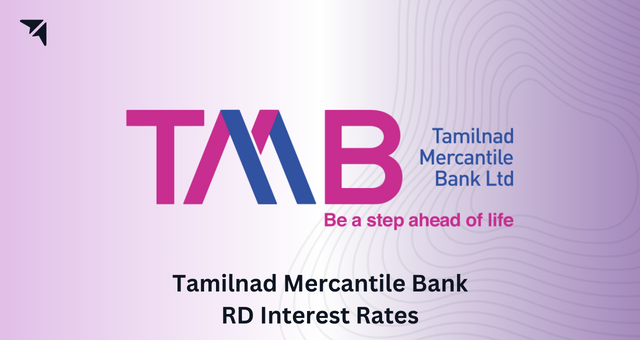
In the realm of financial planning, individuals are constantly on the lookout for secure and profitable investment options. One such avenue that has gained substantial popularity is the Recurring Deposit (RD). This financial instrument offers a combination of savings and returns, making it an attractive choice for individuals aiming to cultivate their wealth over time. In this article, we’ll delve into the concept of Recurring Deposits and explore the numerous benefits they bring to the table.
What is a Recurring Deposit?
Recurring deposit accounts, commonly known as RDs, are a type of financial investment offered by banks and financial institutions. They provide individuals with a systematic and disciplined approach to saving money. In a recurring deposit, individuals deposit a fixed sum of money at regular intervals, usually monthly, for a predetermined period. The deposited amount and the interest earned are returned to the depositor at the end of the tenure. Let’s dive into the numerous benefits that make recurring deposits popular among savers.
Benefits of Recurring Deposit
Recurring deposits have many advantages that cater to various financial goals and preferences. Let’s explore these benefits in detail:
1. Guaranteed Returns
One of the most appealing aspects of a recurring deposit is the assurance of guaranteed returns. The interest rates are fixed at the time of account opening and remain constant throughout the tenure. This predictability allows you to plan your finances effectively.
2. Disciplined Saving
Recurring deposits encourage disciplined saving. Regular monthly deposits instil a habit of setting aside a fixed amount, promoting financial responsibility. This approach is particularly beneficial for individuals who struggle with saving consistently.
3. Flexible Tenures
Recurring deposit accounts offer a range of tenure options, typically spanning from six months to ten years. This flexibility allows you to choose a tenure that aligns with your financial goals, whether short-term or long-term.
4. Low Minimum Deposit
Recurring deposits have a relatively low minimum deposit requirement compared to other investment options. This accessibility makes them an ideal choice for individuals with varying income levels.
5. Risk-Free Investment
Recurring deposits are considered low-risk investments since banks or financial institutions back them. Your principal amount is safe, and market fluctuations do not affect the interest earned.
6. Compound Interest
The power of compounding comes into play with recurring deposits. As the interest is compounded regularly, your savings grow exponentially over time, maximising your returns.
7. Tax Benefits
Recurring deposits sometimes offer tax benefits under Section 80C of the Income Tax Act. However, checking with your financial advisor or the bank is essential to understand the specific tax implications.
8. Emergency Fund Generation
Recurring deposits can serve as a reliable source of emergency funds. The systematic savings approach ensures that you have a safety net to fall back on during unforeseen circumstances.
9. Minimal Documentation
Opening a recurring deposit account requires minimal documentation, making the process hassle-free and convenient.
10. Loan Against RD
In times of urgent financial requirements, some banks allow you to avail of a loan against your recurring deposit. This feature can be beneficial when you need immediate funds without prematurely closing your RD.
Conclusion
Recurring deposits provide a secure and structured approach to saving and growing your finances. With benefits ranging from guaranteed returns to flexible tenures, RDs cater to diverse financial goals. Their low-risk nature, compounded interest, and potential tax benefits make them a preferred choice for individuals seeking a steady path to financial growth. Whether you’re saving for a specific goal or building an emergency fund, a recurring deposit can be a valuable addition to your financial portfolio.
Remember, before making any financial decision, it’s essential to consult with a financial advisor to ensure that the chosen investment aligns with your unique circumstances and goals. So, why wait? Explore the benefits of recurring deposits and embark on a journey towards a more secure financial future.
FAQs
Yes, you can prematurely withdraw money from your recurring deposit account. However, depending on the bank’s policies, this may result in a reduced interest rate and potential penalties.
Yes, the interest earned on a recurring deposit is taxable as per your income tax slab. It is subject to TDS (Tax Deducted at Source) if the interest exceeds a certain threshold.
Generally, banks do not allow changes in the monthly deposit amount once the recurring deposit is initiated. It’s essential to clarify this with your bank before opening the account.
Missing a monthly deposit can attract a penalty, and your interest earnings may also be affected. It’s recommended to maintain a consistent deposit schedule.
Yes, you can take a loan against your recurring deposit for various purposes, including medical emergencies, education expenses, or debt consolidation. The loan amount is usually a percentage of the total deposit.
The interest in a recurring deposit is typically compounded quarterly. The formula used for calculating interest can vary slightly among banks, but it generally follows the compound interest formula.
Disclaimer
This article is solely for educational purposes. Stable Money doesn't take any responsibility for the information or claims made in the blog.


